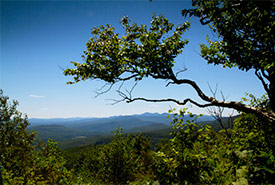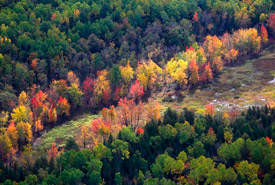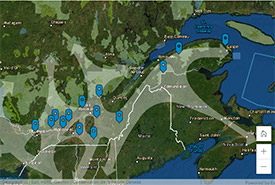Ecological corridors
-
Climate change adaptation
Climate change is a major threat to wildlife and ecosystems in Canada and around the world. Adaptation to these changes is critical, not only to protect biodiversity but also to support human health and well-being.
-

Connectivity and climate change: The Fonds vert to help ecological corridors
NCC welcomes the contribution of nearly $1M from the Ministère du Développement durable, de l’Environnement et de la Lutte contre les changements climatiques to its Ecological corridors: a climate change adaptation strategy project.
-

Connectivity: Passages for species to migrate
What is connectivity? Connectivity is a fundamental principle in nature conservation. Protecting and restoring connectivity is critical in landscapes that have been fragmented by roads, cities and farms.
-

Ecological corridors - story map
Ecological corridors: A climate change adaptation strategy
-
NCC and RESAM join forces to protect natural environments
The Nature Conservancy of Canada (NCC) and the Regroupement des sociétés d'aménagement forestier du Québec (RESAM) are pooling their expertise to inform, engage and support woodlot owners in sustainable forest management, and as a result address climate change.




